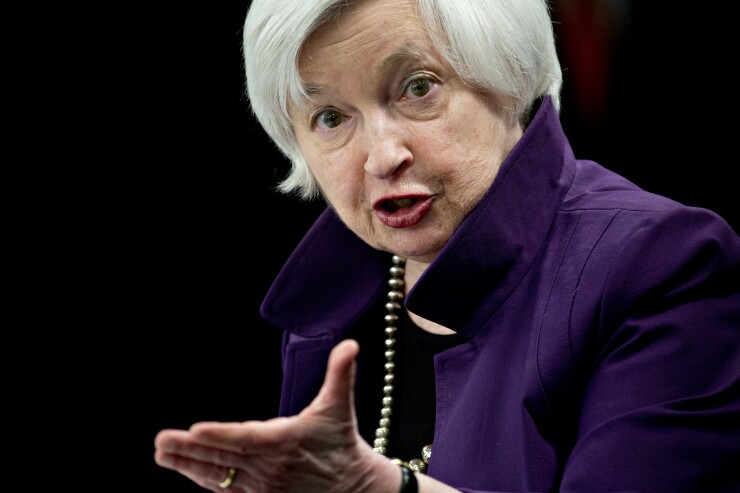WASHINGTON — Federal Reserve Chair Janet Yellen said Tuesday that the central bank should continue to use interest payments on member bank reserve balances as its primary means of setting short-term interest rates, rebuffing calls to return to more conventional monetary policy tools.
Yellen said that implementing a policy of paying interest on bank reserves was a critical method of affecting monetary policy after the crisis. Though some members of Congress have
“It is currently our key policy tool. We absolutely need it,” Yellen said. “There has been discussion in Congress about taking that power away, and I have argued very strenuously against it. We would not be able to control short-term interest rates now if we did not have that power.”

Because the Fed’s balance sheet grew so large after it bought large volumes of Treasuries and mortgage-backed securities to shore up the financial system, she said, there was no other practical means of steering short-term rates, and returning to more conventional policies would have little benefit.
She added that, even as the Fed’s balance sheet is drawn down over the coming years, the Fed should stick to its policy of paying interest on reserves.
“If it were to disappear, we would really have to change our monetary policy strategy, and probably start quickly selling off assets to take control of short-term interest rates. That would be very disruptive,” Yellen said. “I think the new normal needs to be that we will retain that power and keep it as our main monetary policy tool.”
Yellen made her comments before an audience of students and invited guests at the New York University Stern School of Business Tuesday evening in what is likely among her final public appearances as leader of the U.S. central bank. President Trump announced that he had selected Federal Reserve Gov.





